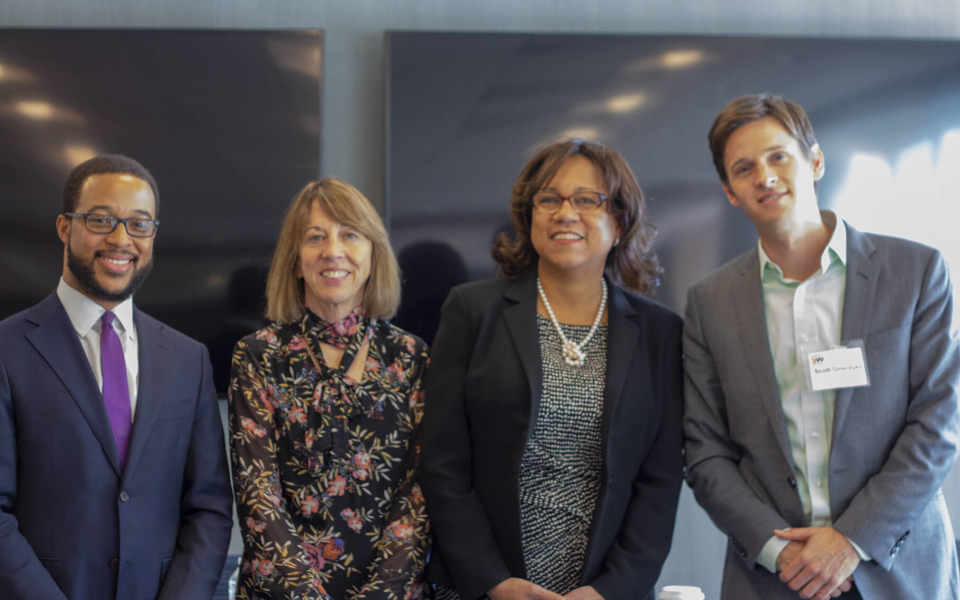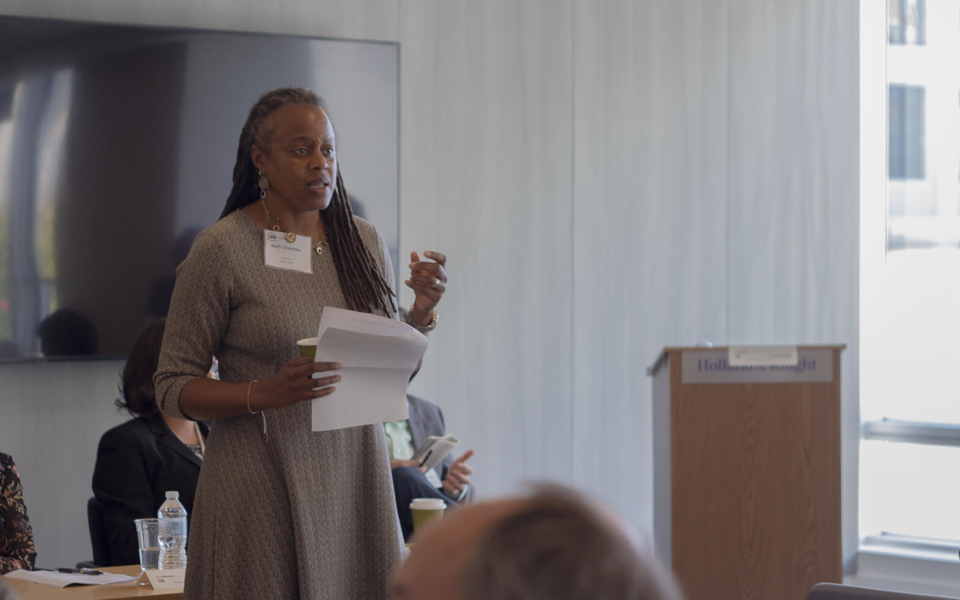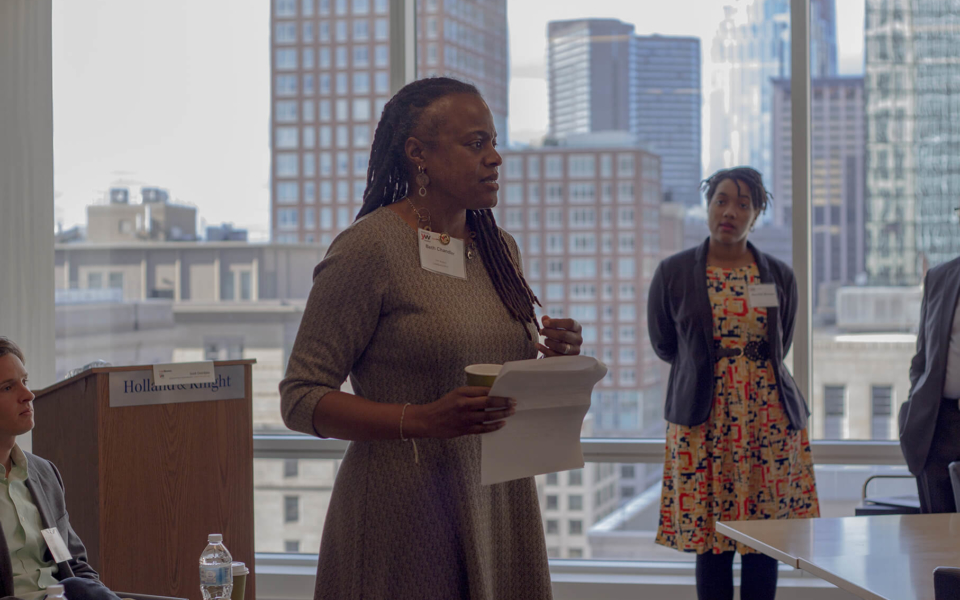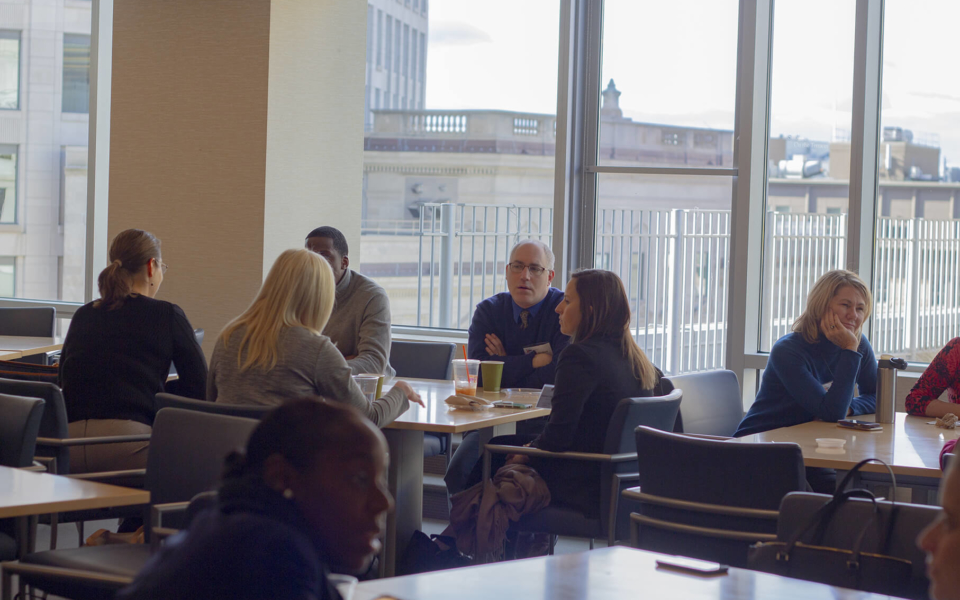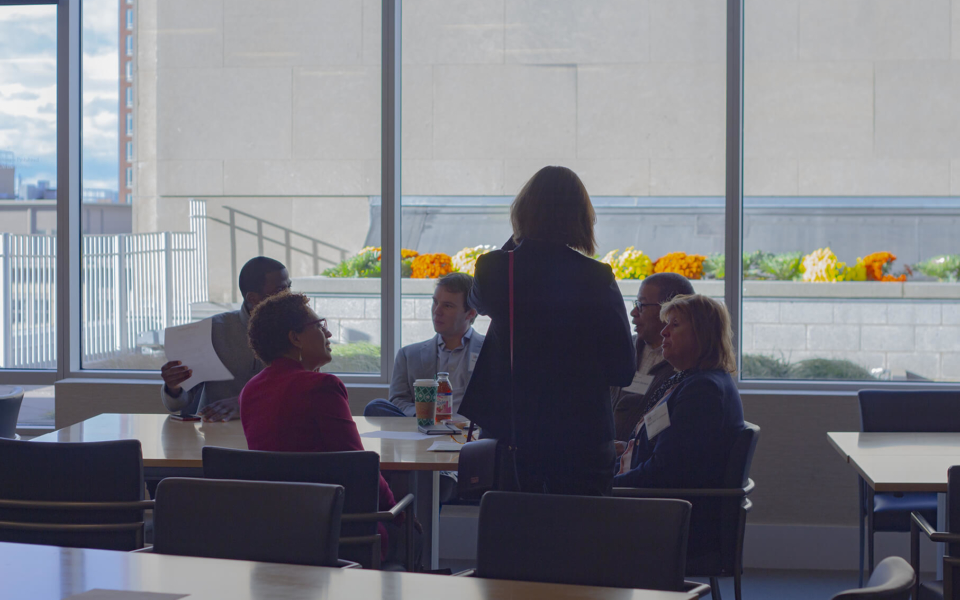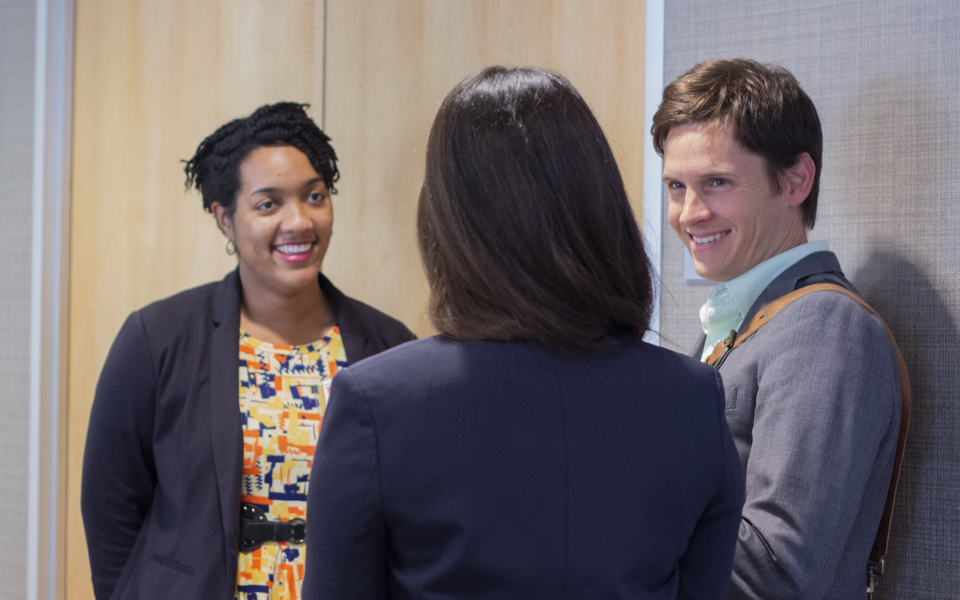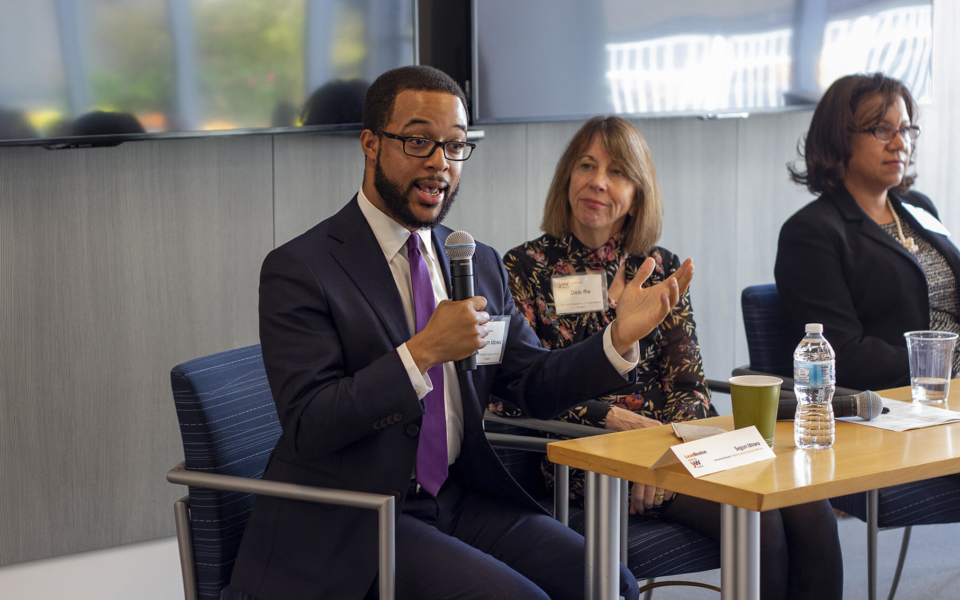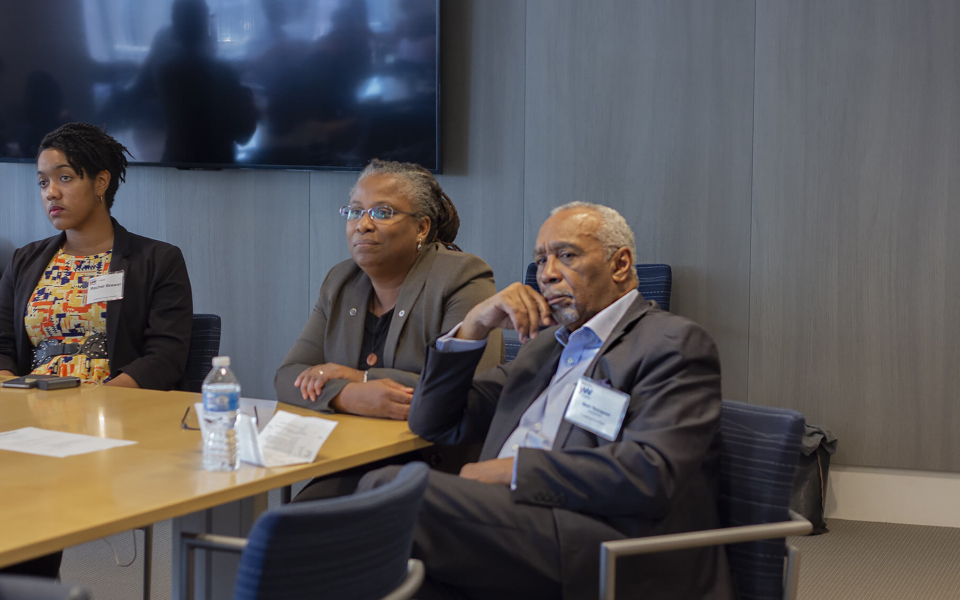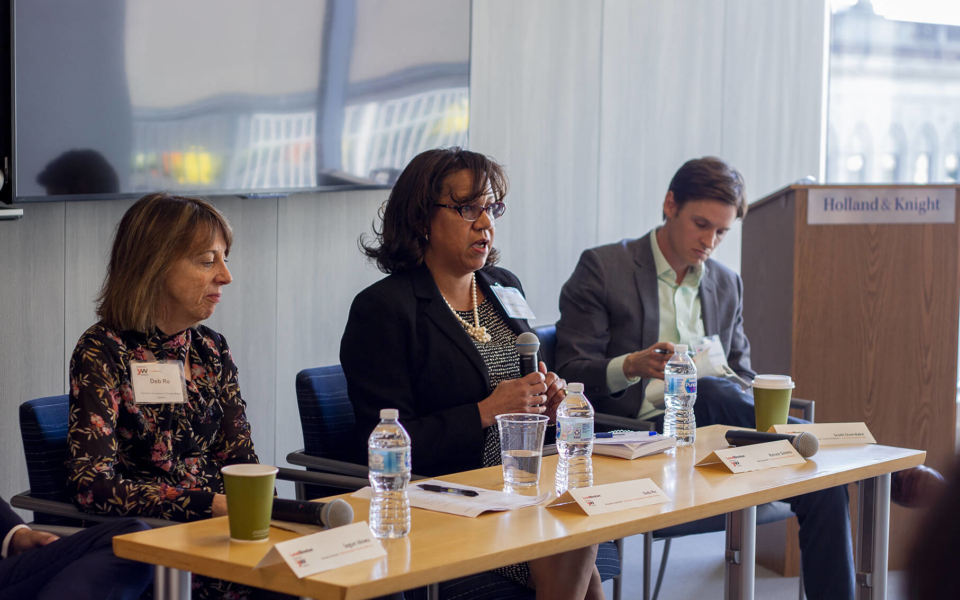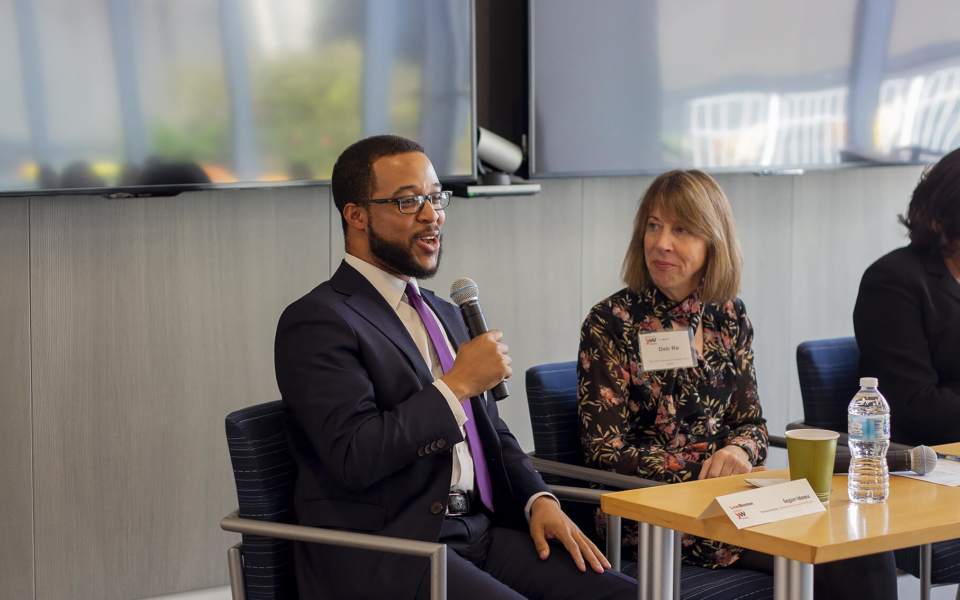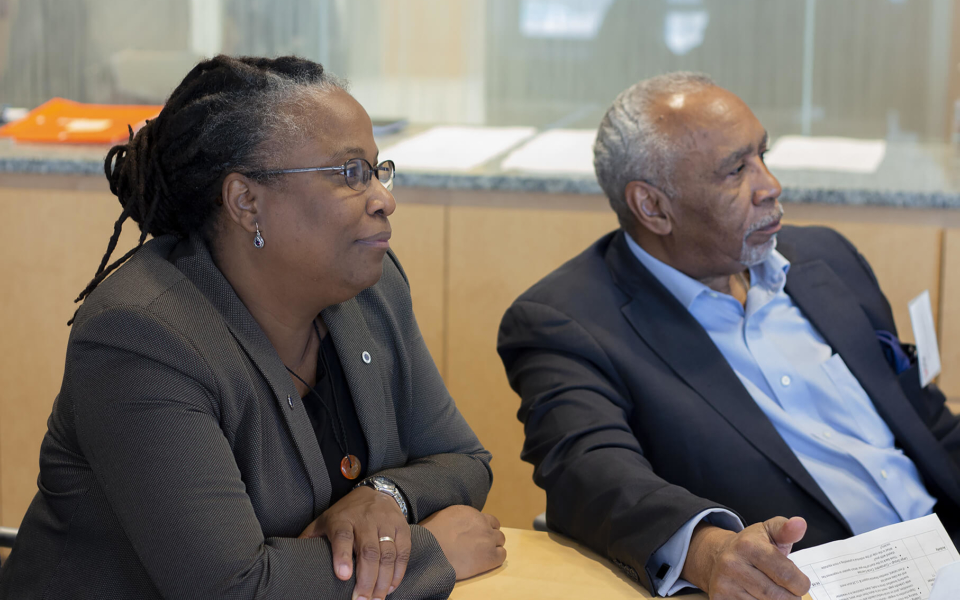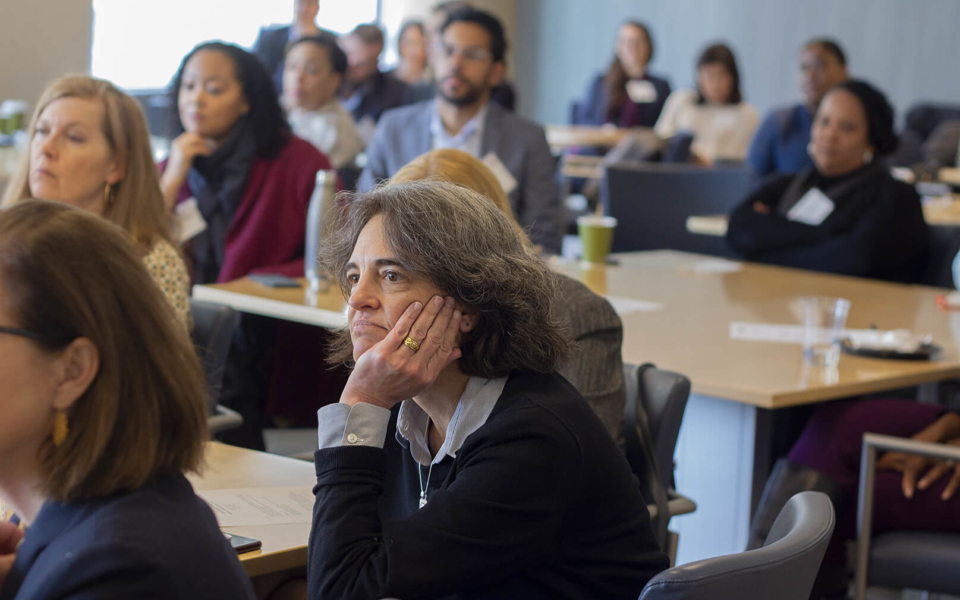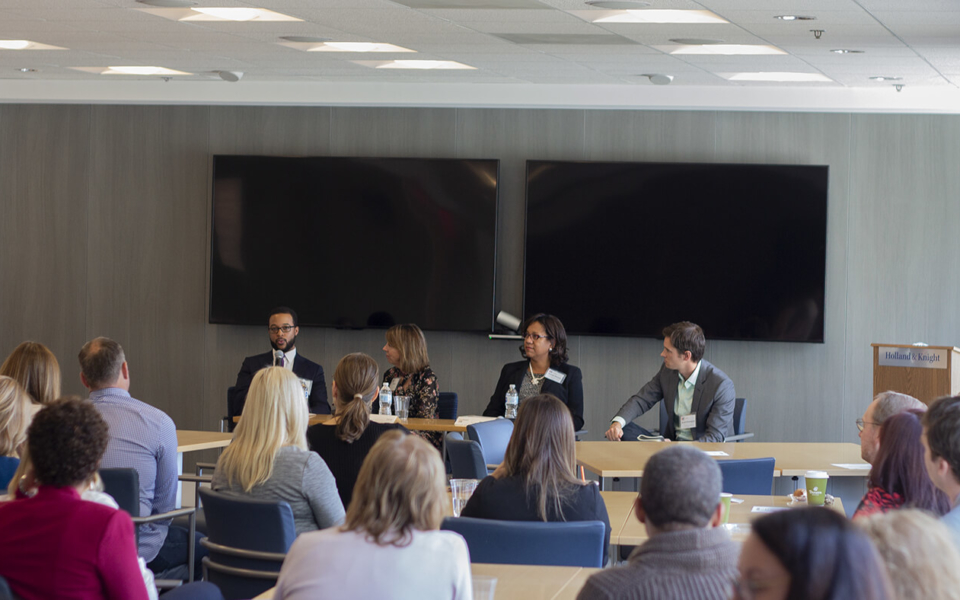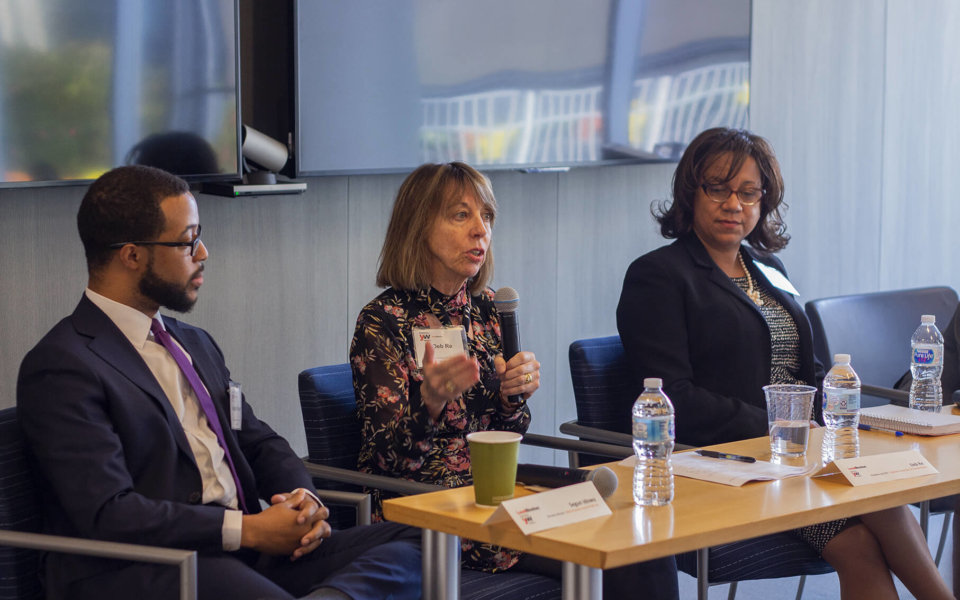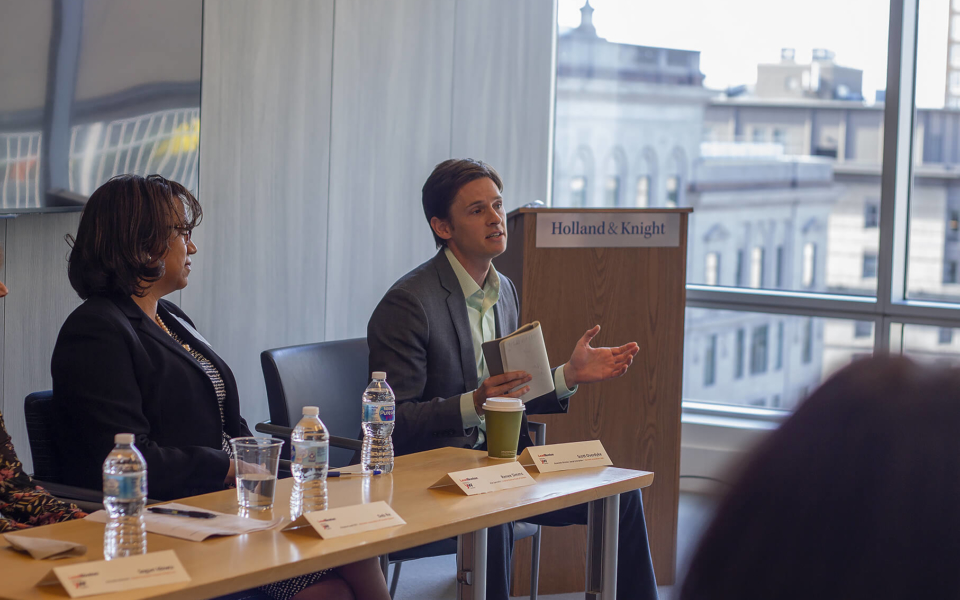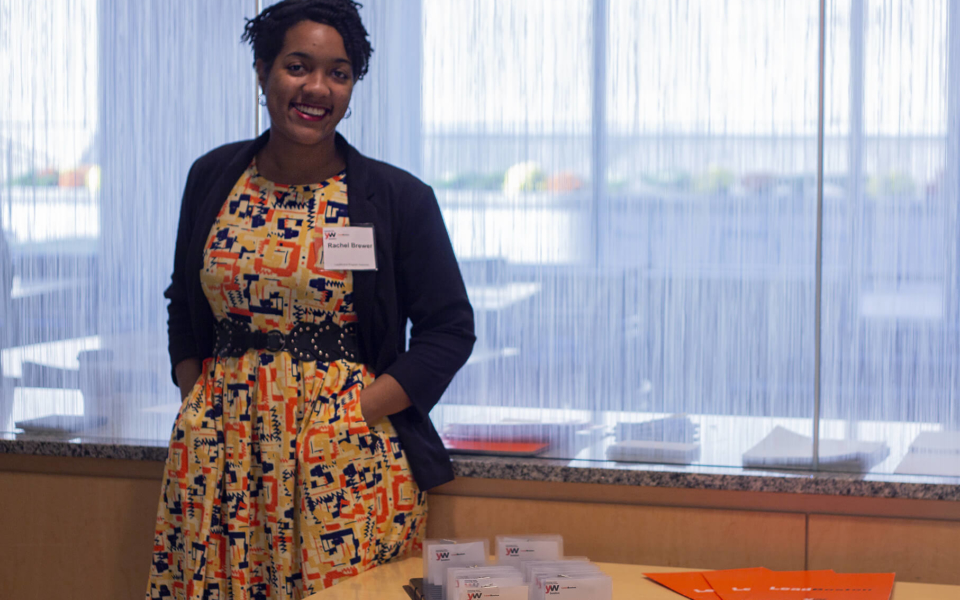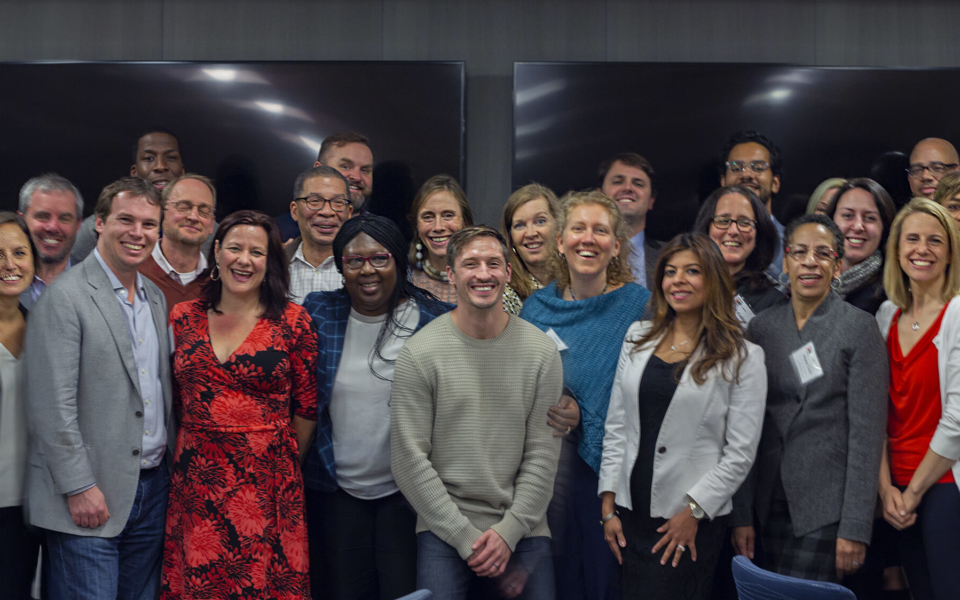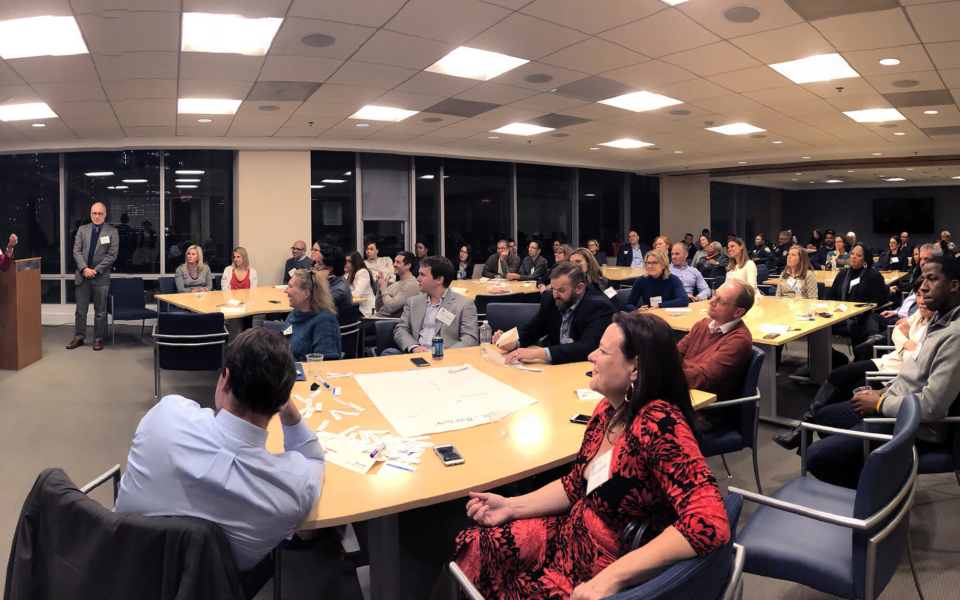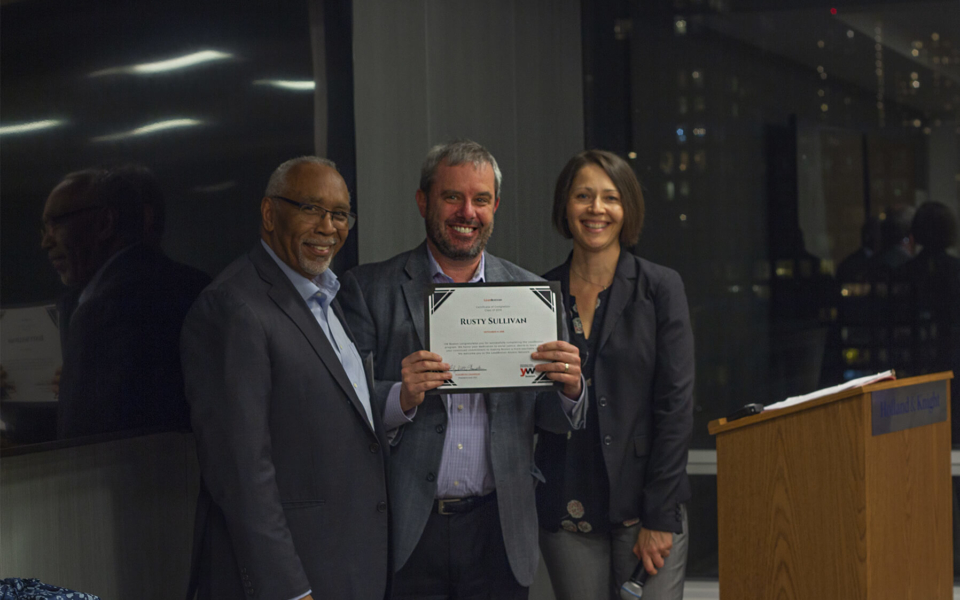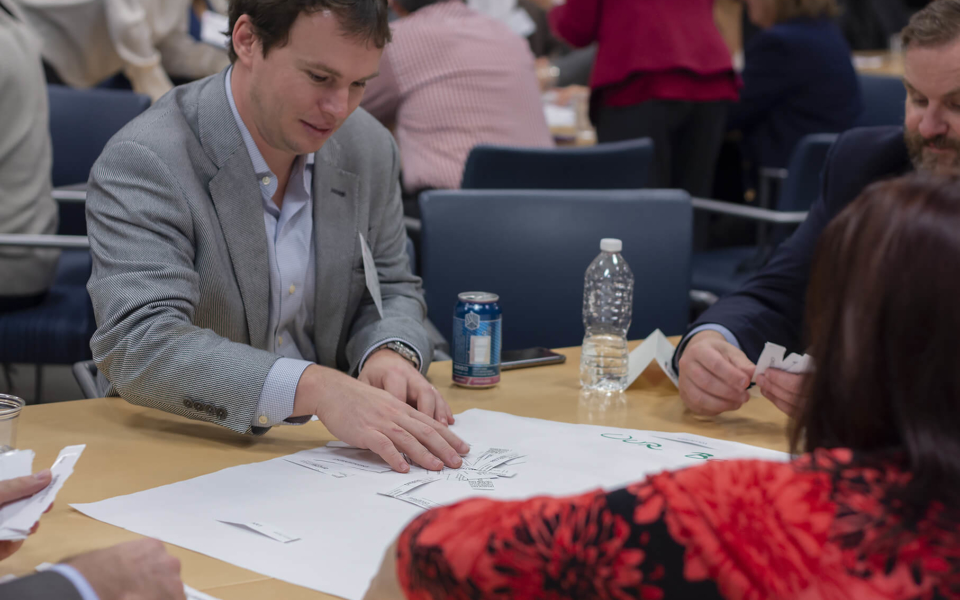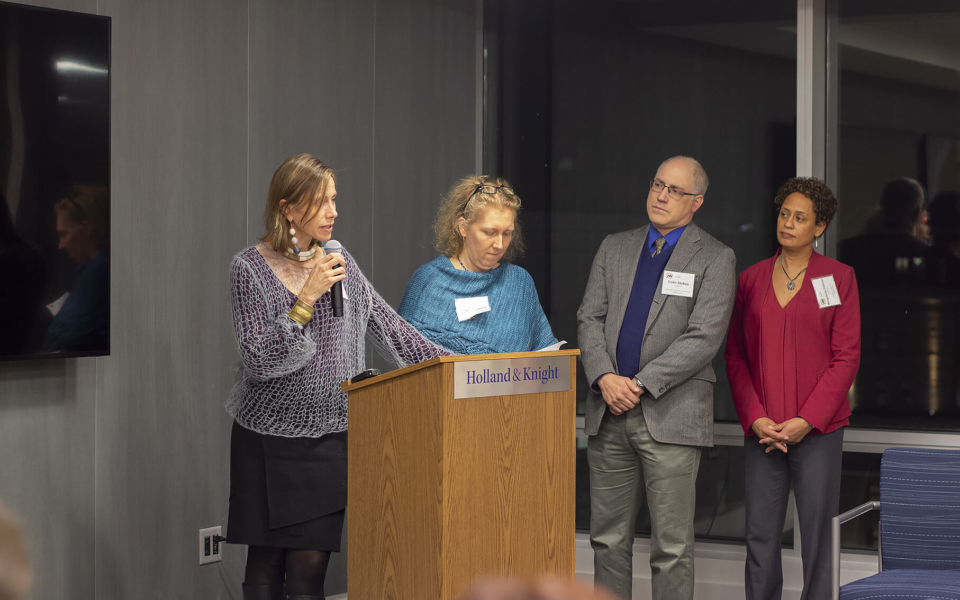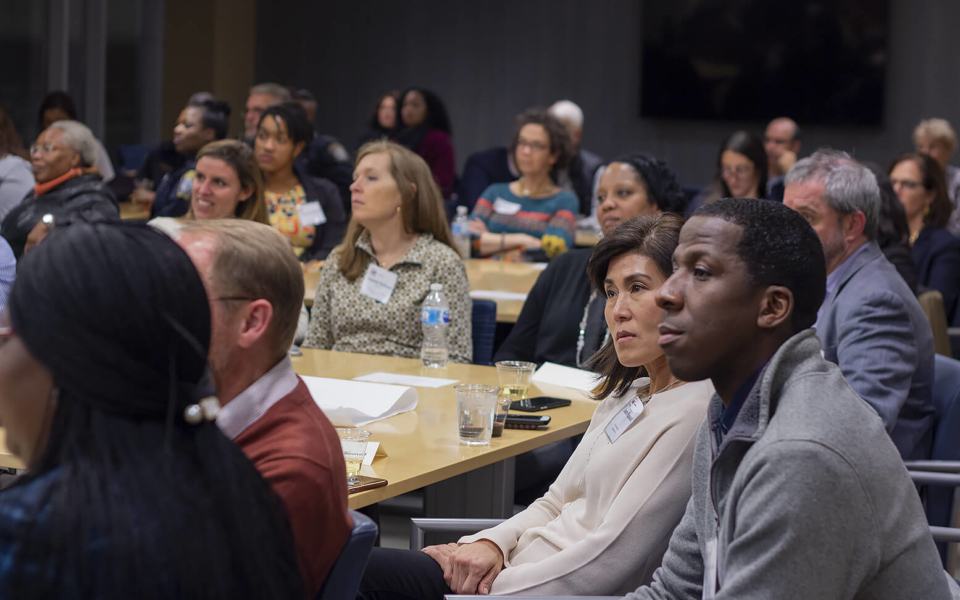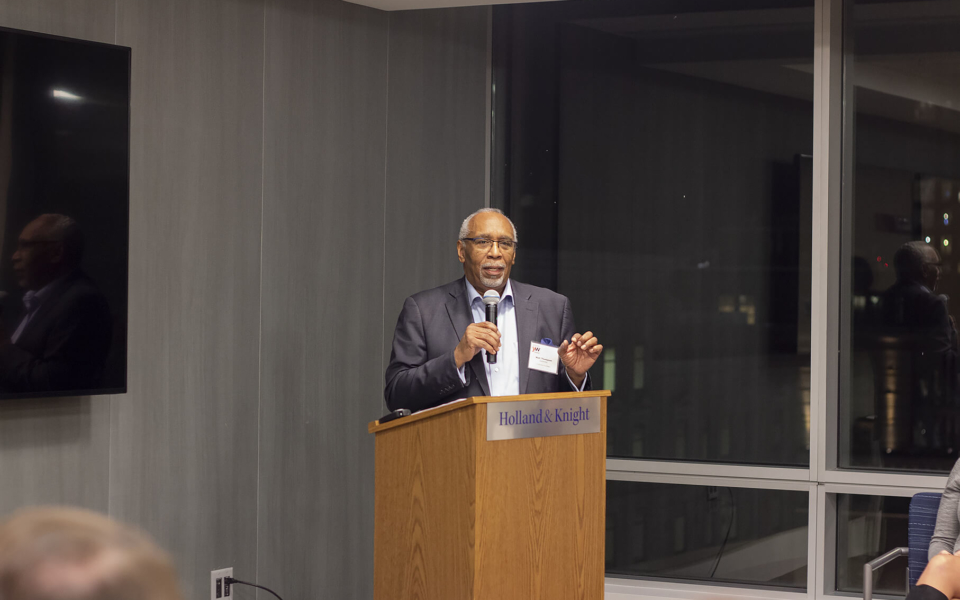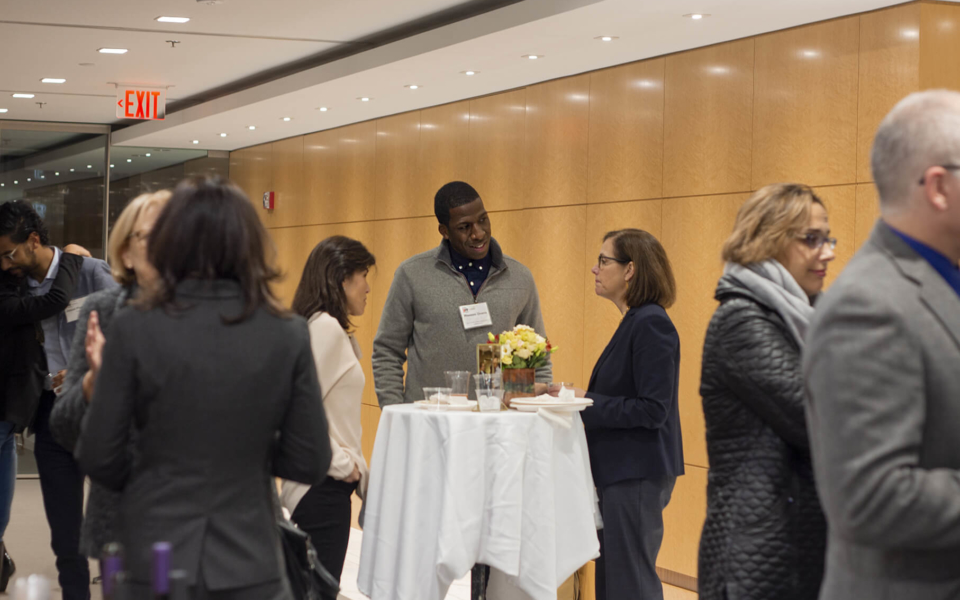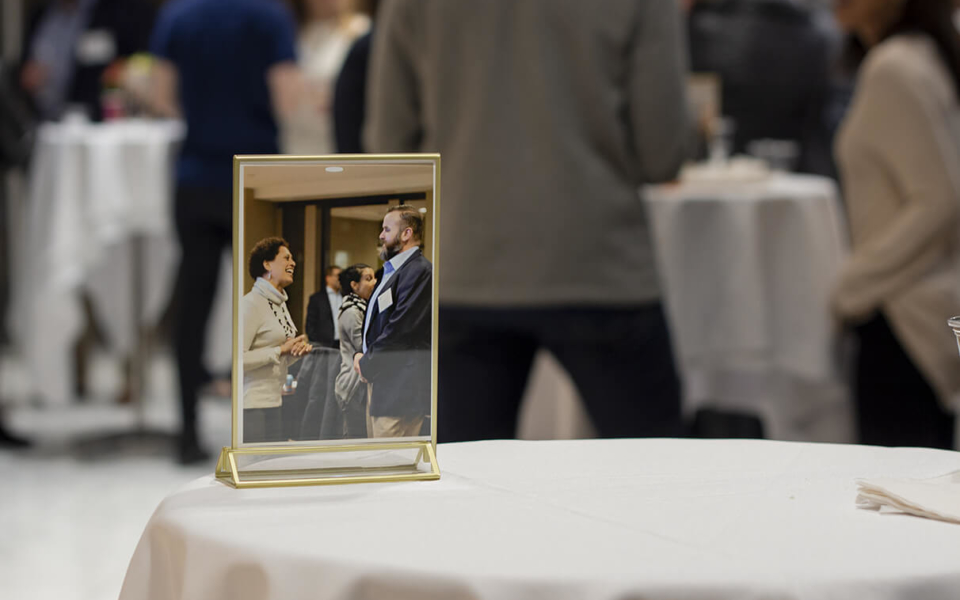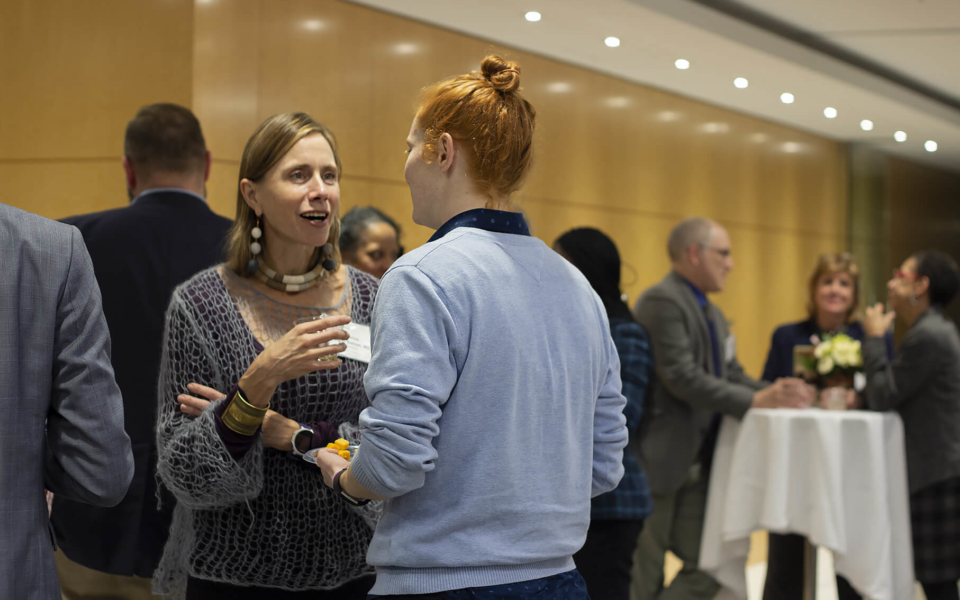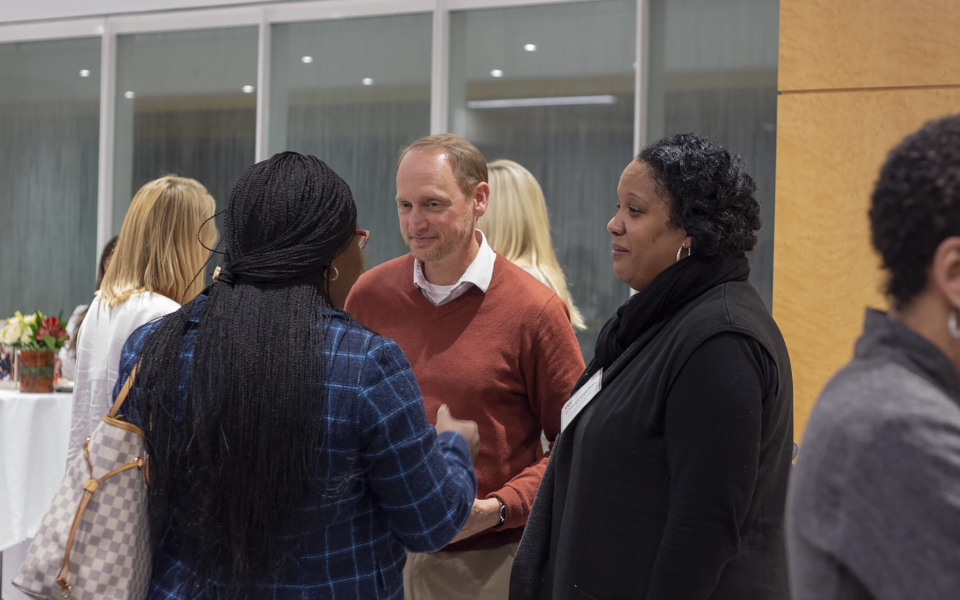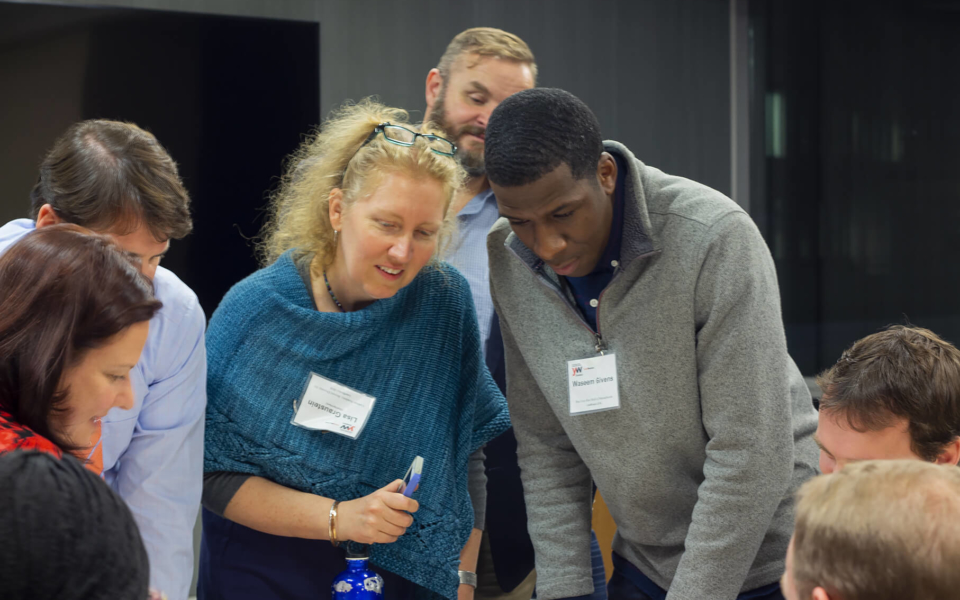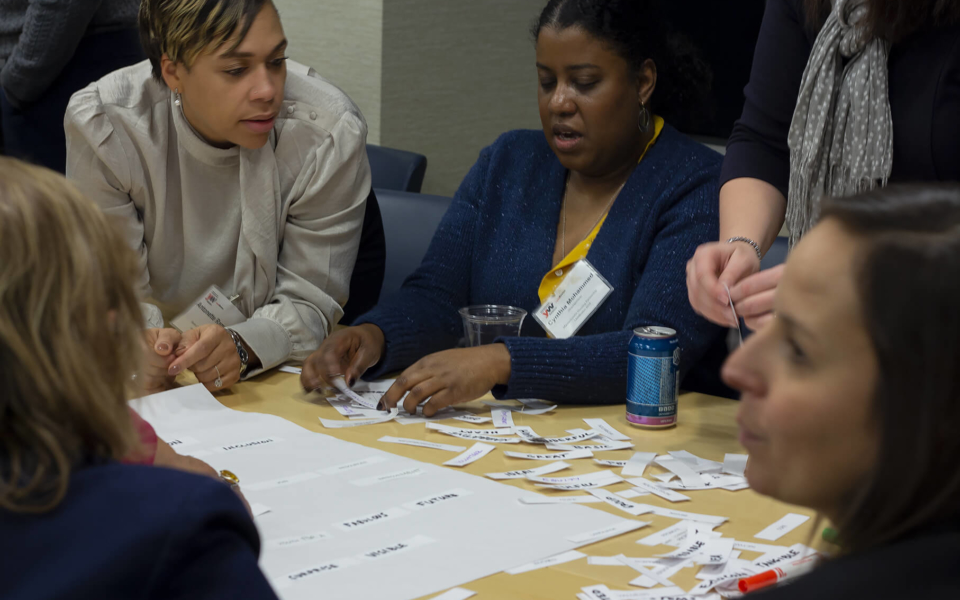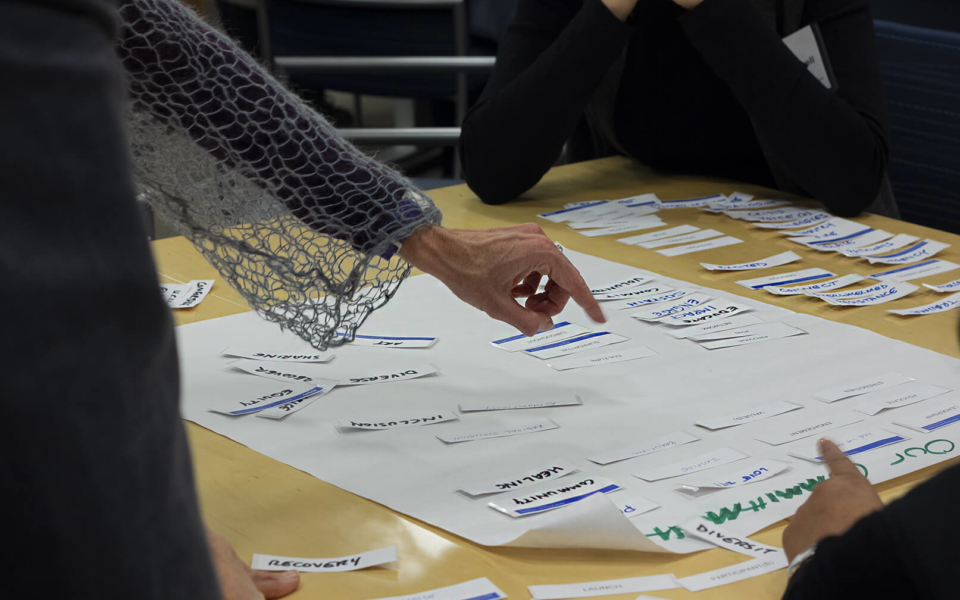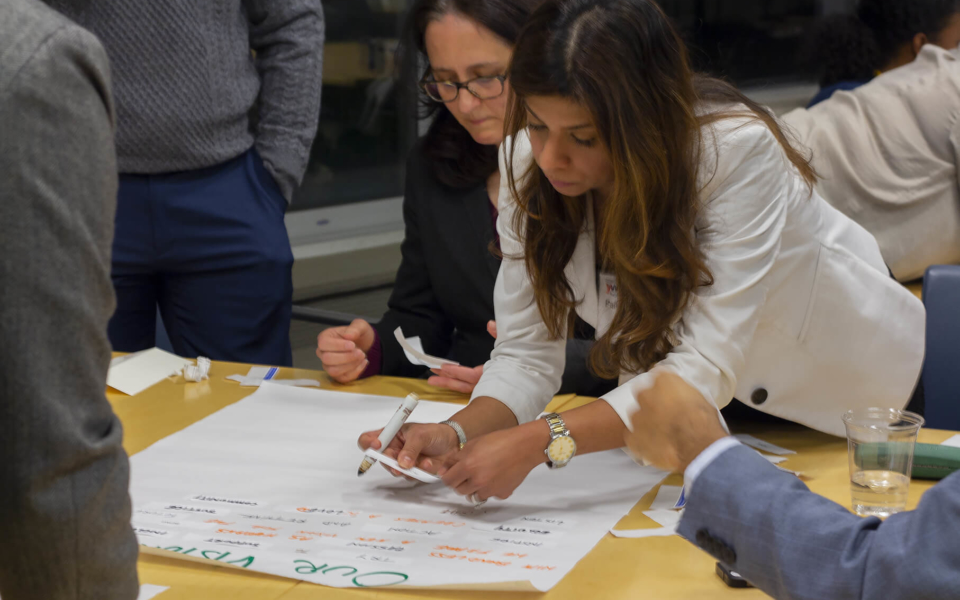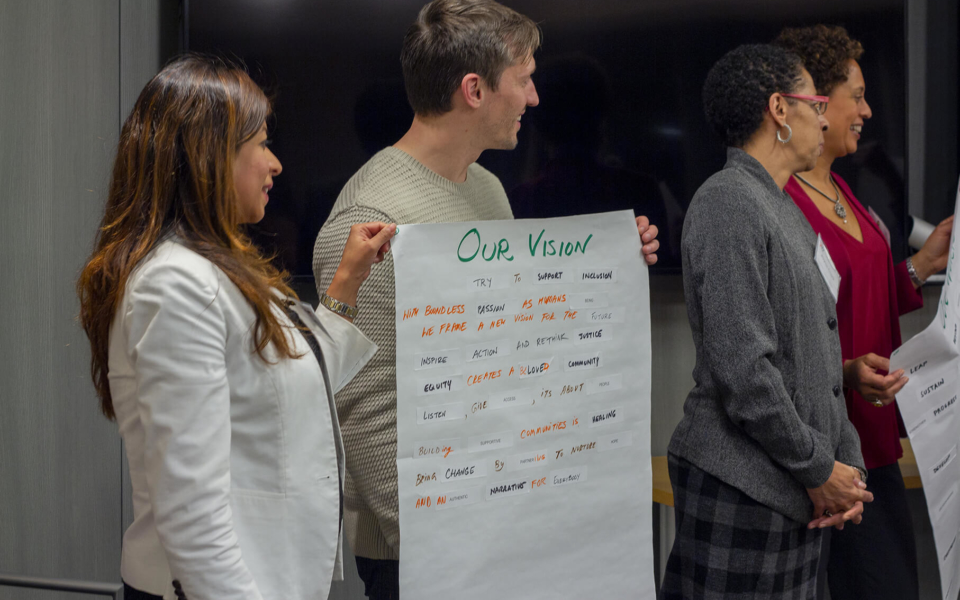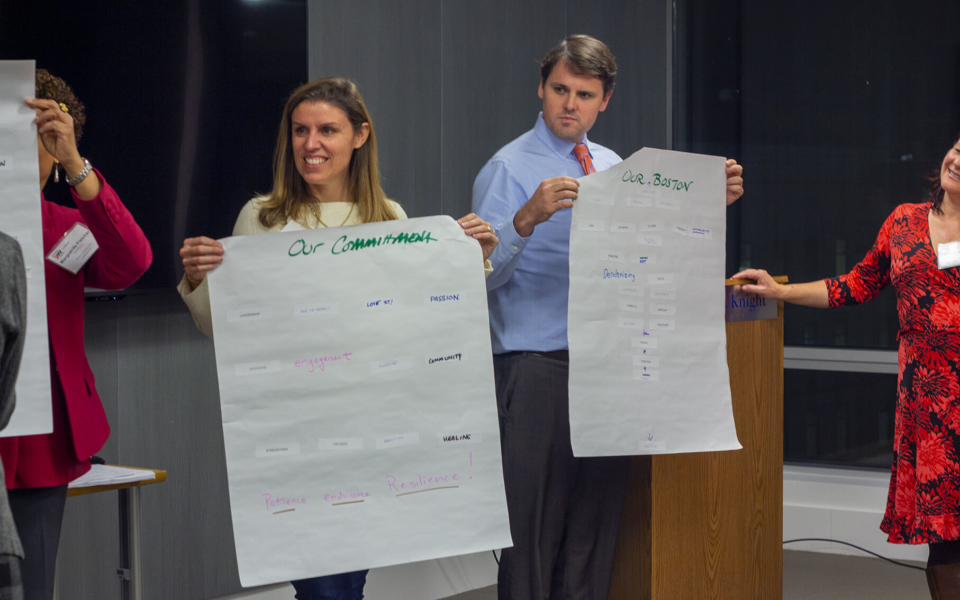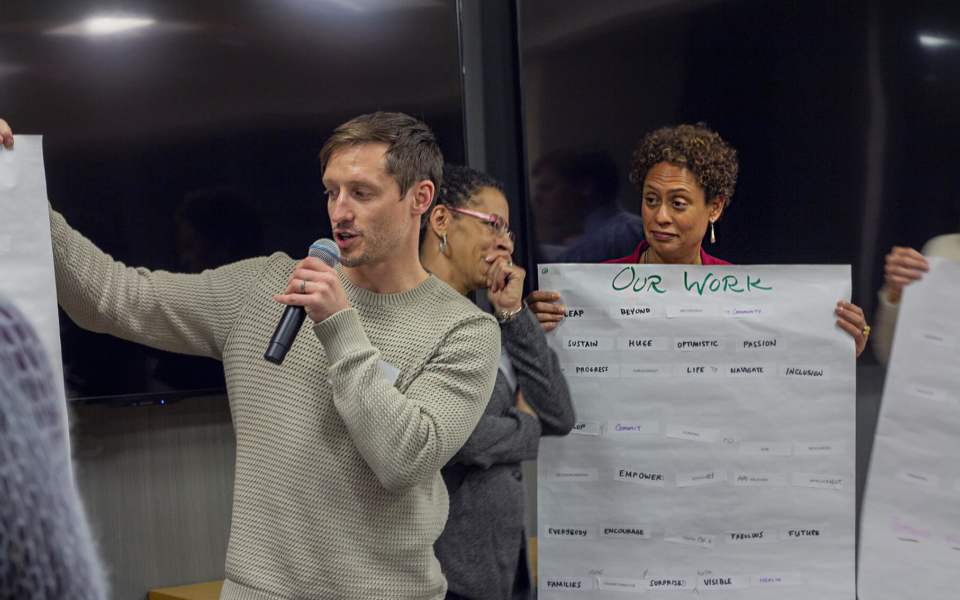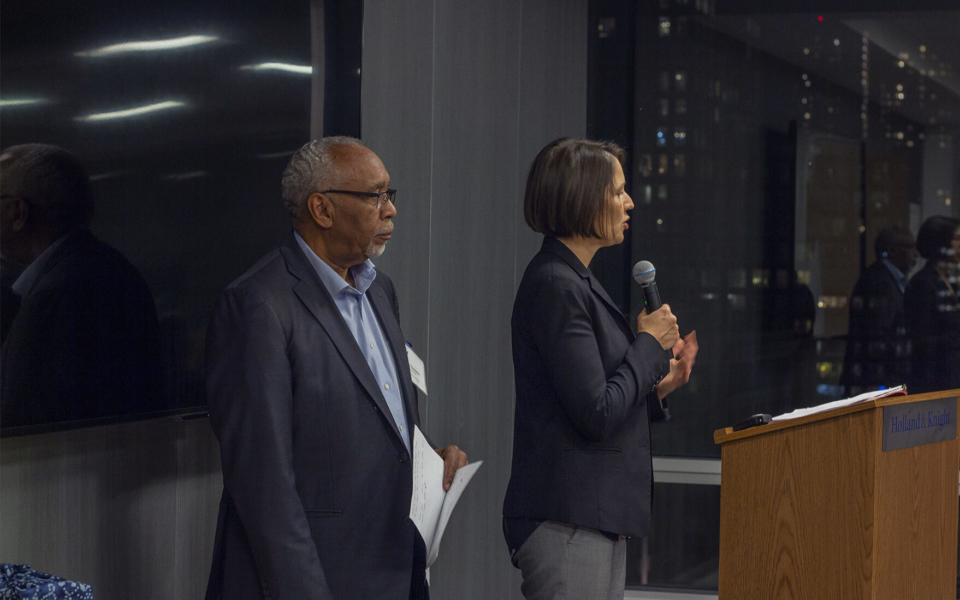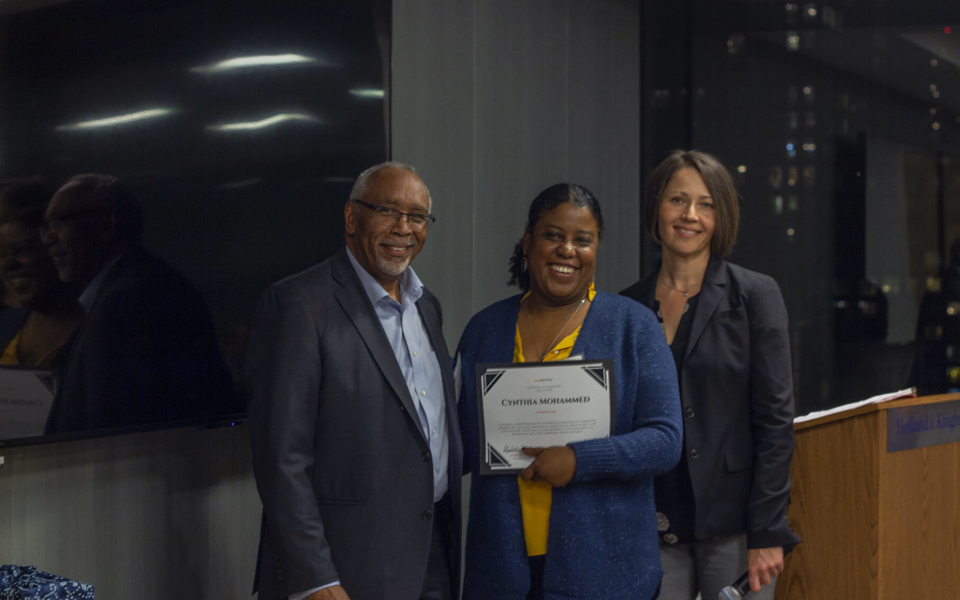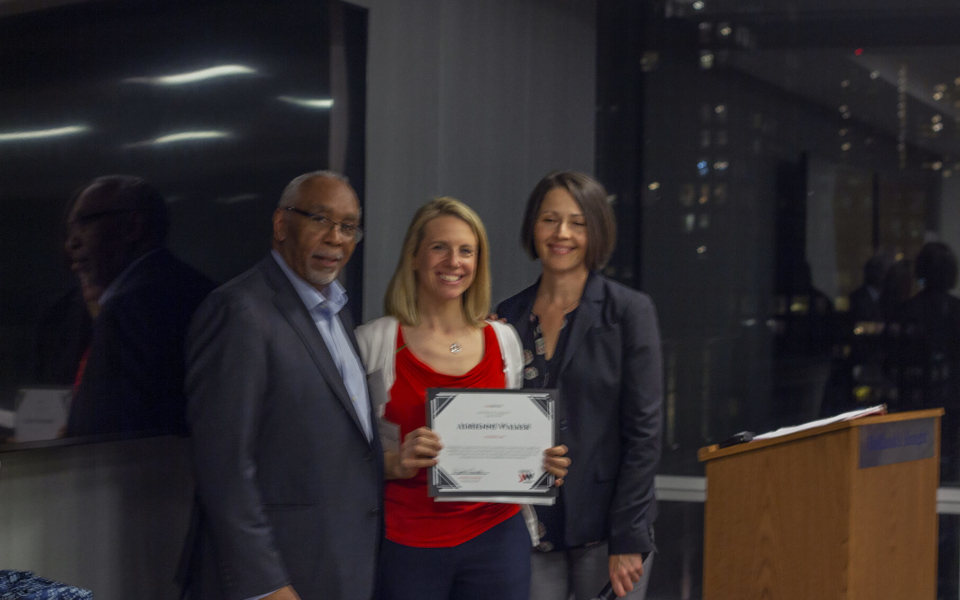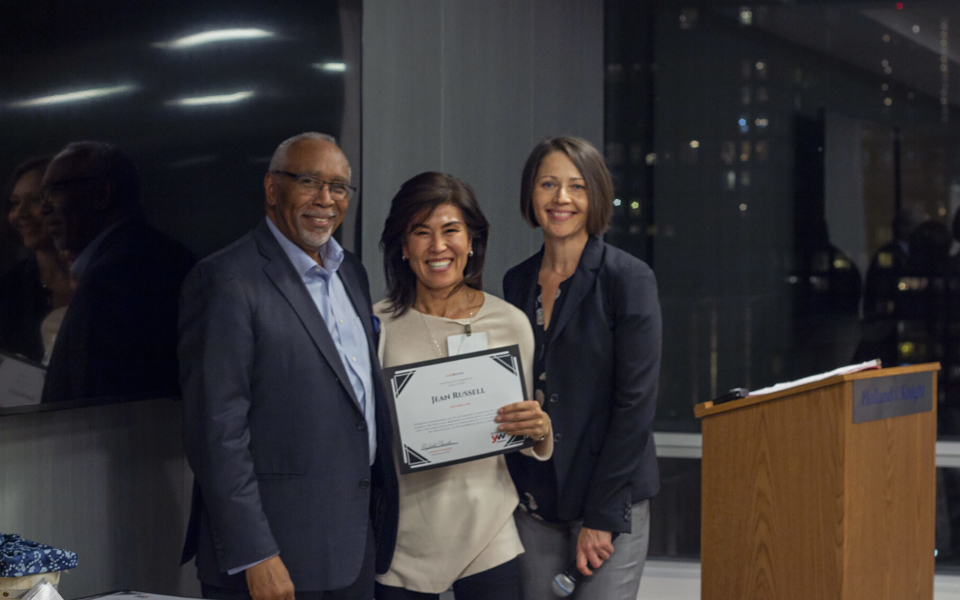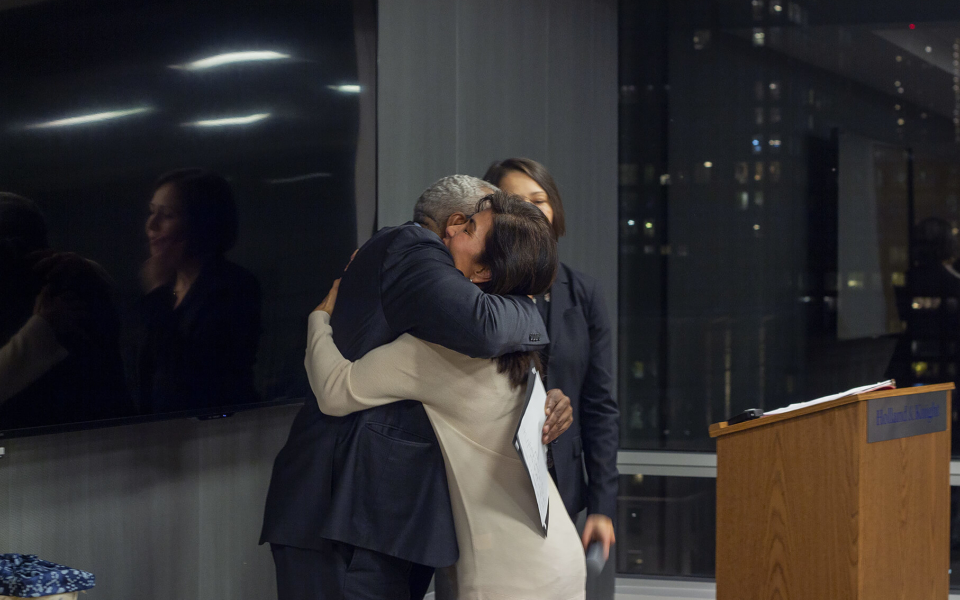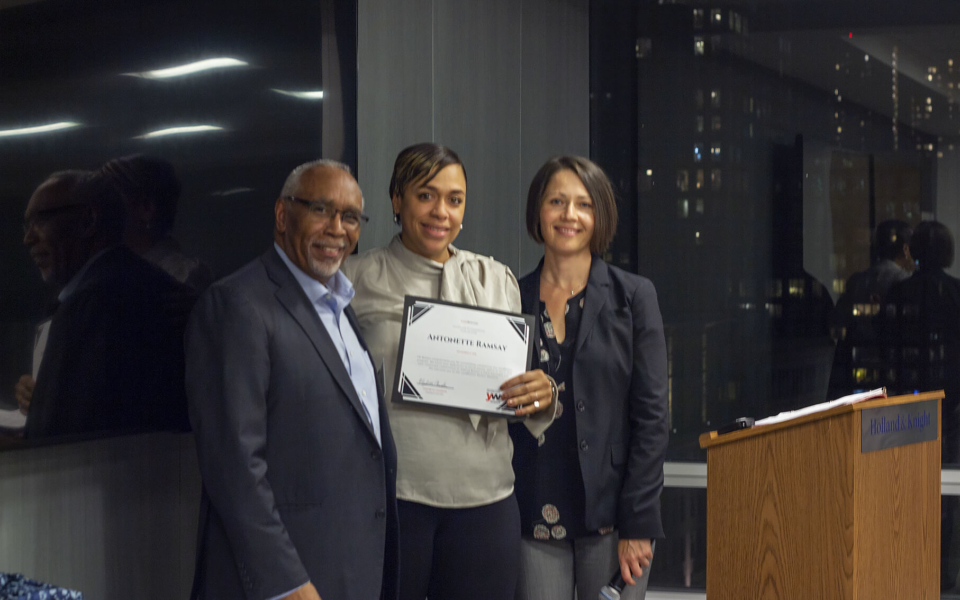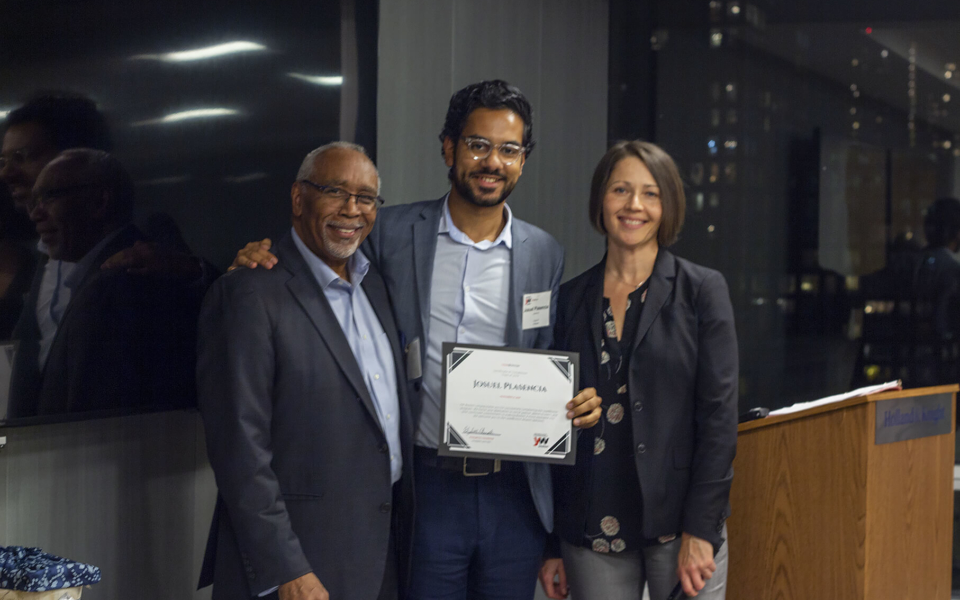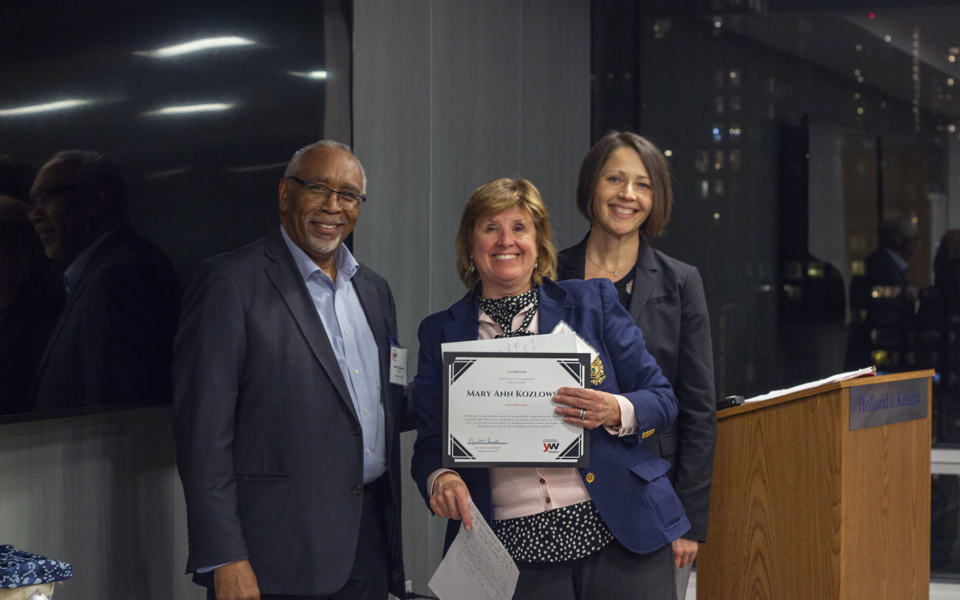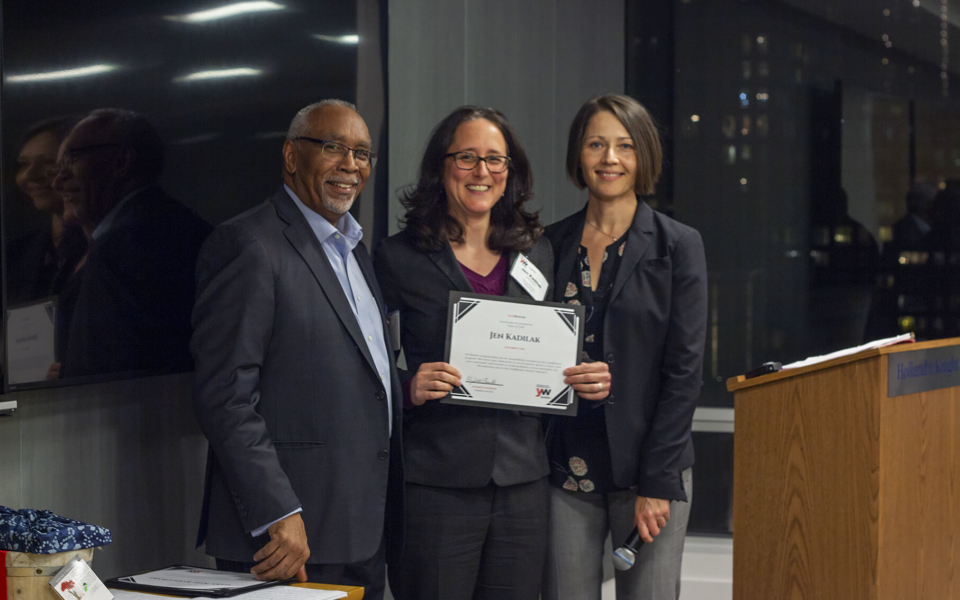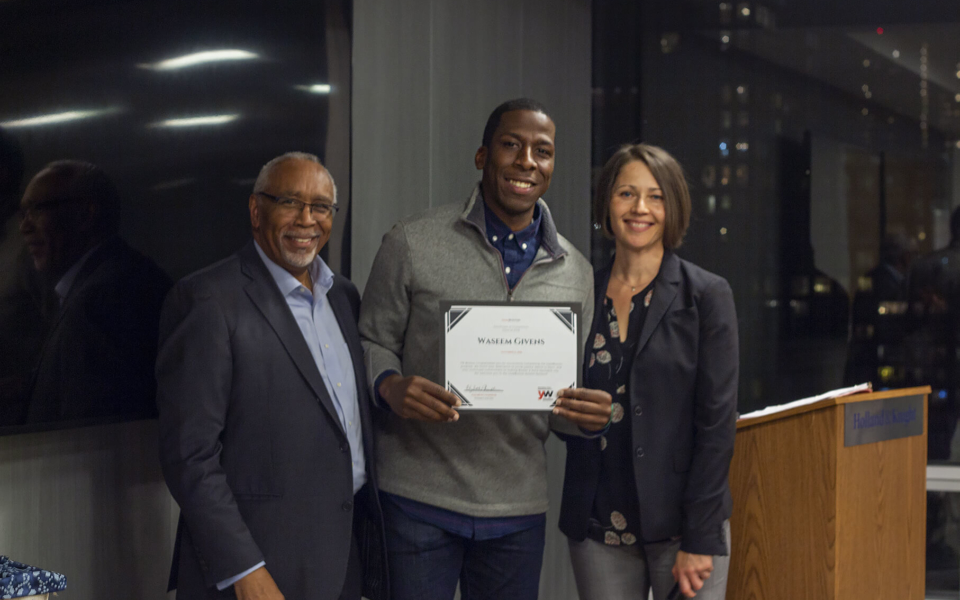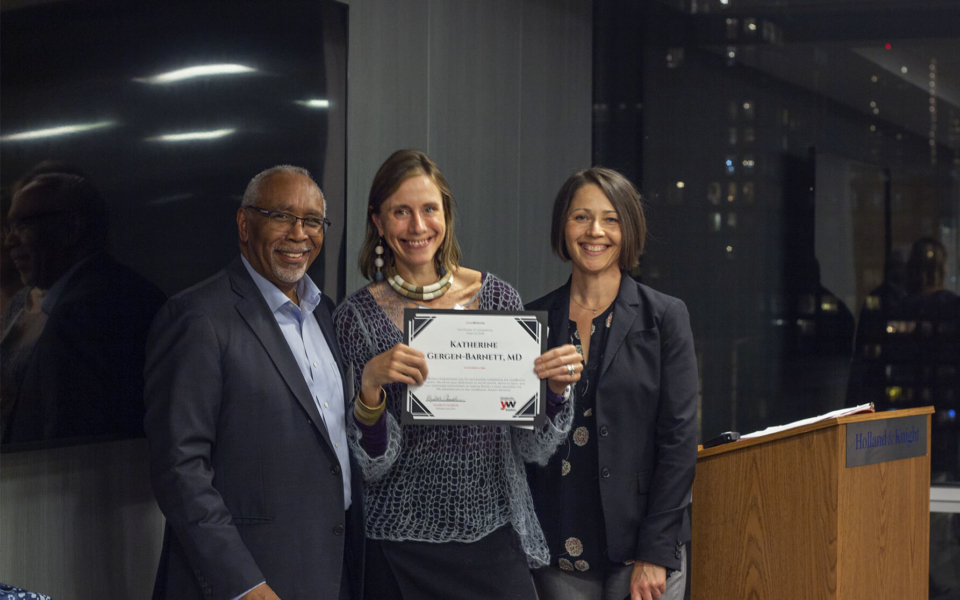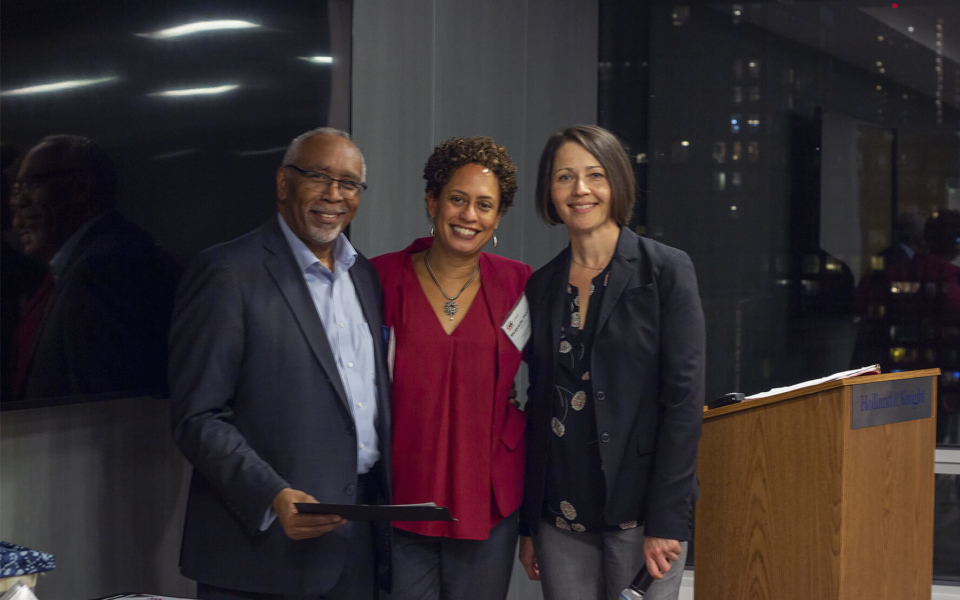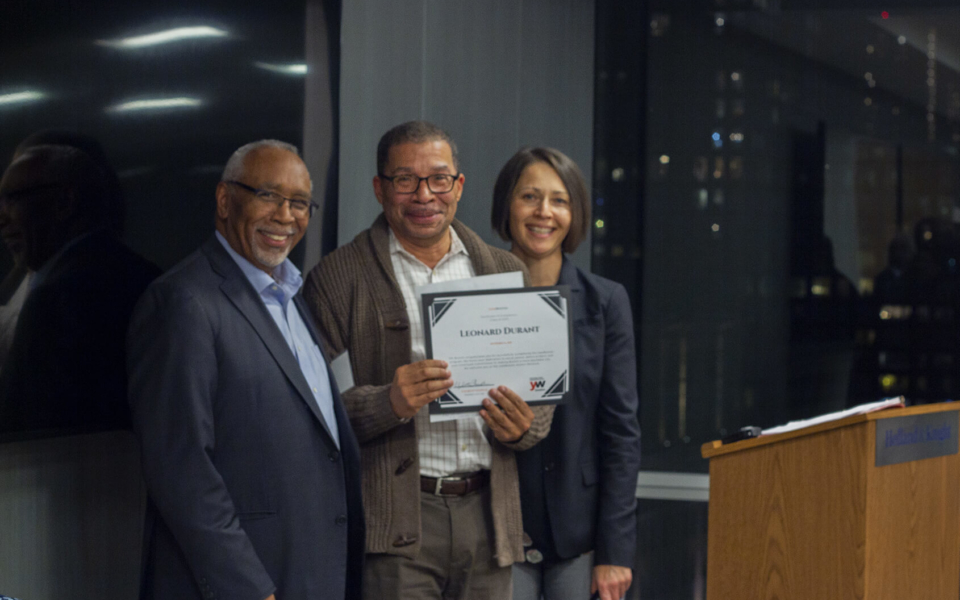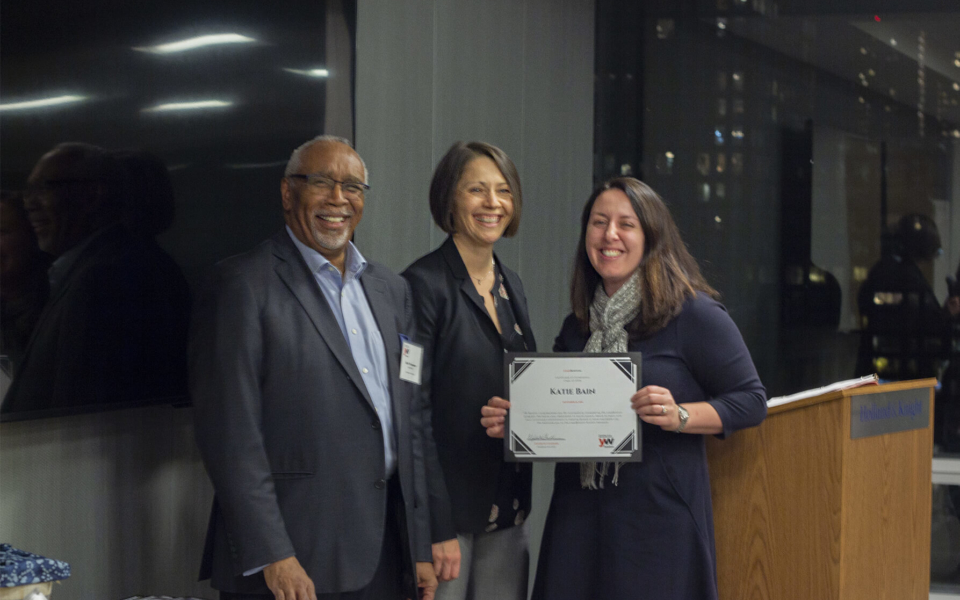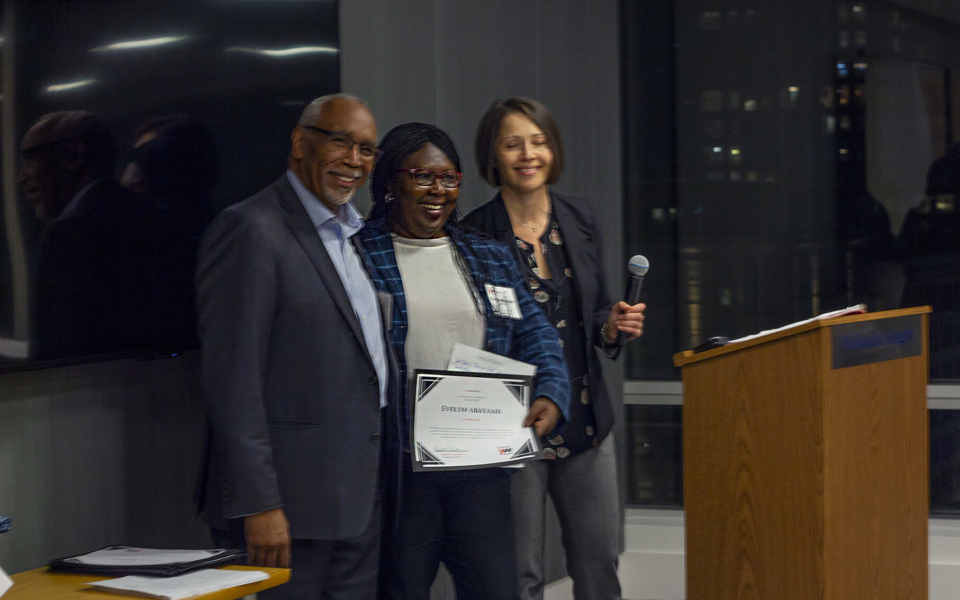40 Leaders Graduate from LeadBoston with a Commitment to Enhance Communities in the City
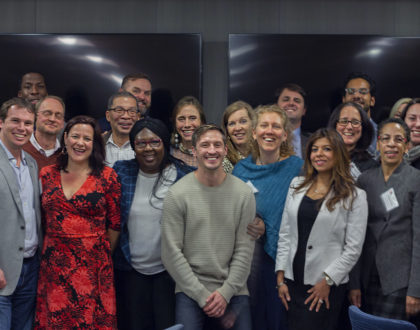
On November 14, our LeadBoston class of 2018 participated in their final program day and graduation ceremony. Forty leaders graduated from YW Boston’s executive leadership program LeadBoston, and together they created a unique graduation address to preserve the lessons of their year together. Their remarks can be found below. Together, they’ll continue to explore our city, contribute to the communities that make it strong, and build relationships that encourage success. Congratulations, LeadBoston 2018!
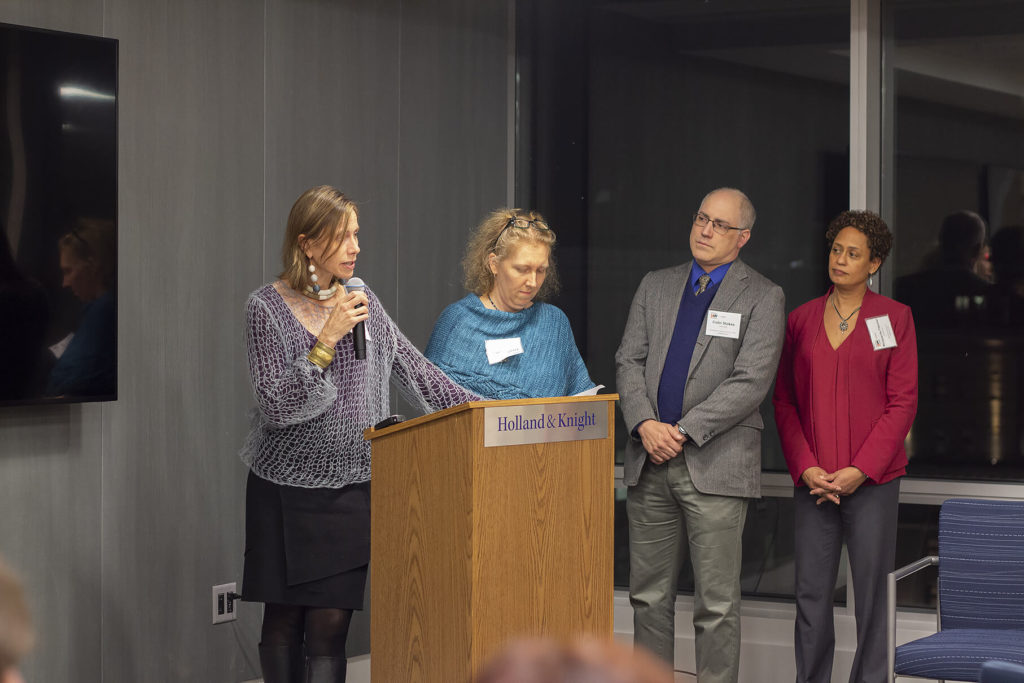
Lisa Graustein, Marguerite Fletcher, Colin Stokes, and Katherine Gergen-Barnett MD collaborated for this year’s graduation opening remarks:
At its best, the LeadBoston experience broke open the way we see our city. Things we thought we knew turned out to be wrong. Even the way we were thinking about the things we were wrong about…were wrong.
To make that point, we decided to think about the graduation speech in a different way. The four of us found four assumptions that underlie graduation speeches and imagined what it would be like if we did the opposite.
First: What if we reject the idea that one of us has special expertise and advice to share? None of us has additional qualifications than anyone in this room. We’re individuals among a diverse set of classmates, with different strengths, visions, learned wisdom, and life paths. Each of us came nearly one year ago with our own voices. But the first thing we did was explore the neighborhoods of Boston. Some were new to us despite being native to Boston; many were places we’d avoided out of bias and fear. Walking the streets, studying maps and statistics, and learning the history of our neighborhoods from different perspectives helped us begin to reframe our own narrative. Rather than return our focus to one person’s experience, let’s close by practicing our new, collective voice, together,
Second: What if we deny that there are boundaries between us–between our professions, our sectors, our town lines? We noticed over and over this year how common siloes are, and how destructive. We constantly divide voices, policies, and histories into categories and specialties, allowing us to hand every problem off to somebody else as soon as it requires us to sacrifice. The big systems of the city, like health, education, housing, and transportation, build barriers within the systems we need to support holistically, like families, neighborhoods, the environment. But then we saw Boston Medical Center, which, even with its reputation as resource-strapped safety net, embraces responsibilities far outside the standard hospital’s job description: gardens, food pantries, job training, tax preparation, childcare. Rather than return to focus on one person’s professional lens, let’s close by smashing boundaries and building a new whole.
Third: What if we refuse to elevate the louder among us as inherently wiser? The news reminds us every day that equating leadership with volume sucks up enormous resources from more valuable work. We saw on panels and, most memorably, at the House of Corrections that leadership does not always show itself as high-status “public speaking.” Mentoring is leadership; organizing outside of the public eye is leadership; promoting others is leadership. Rather than return the spotlight to those of us who have made our arguments frequently already, let’s listen more deeply to classmates who have been processing more than proclaiming.
And finally: What if we see leadership not as knowing more than others, but as understanding especially deeply how little we know? In the handful of times our cohort has experienced overt conflict, we’ve evolved in our comfort with being called out. By the time we built our simulated communities with construction paper and tape this fall, we were exposed to each other in all of our blindness and our righteousness, engaging in the most profound kind of play. Rather than return to confident assertions that are limited by our experiences, let’s create from a place of shared ignorance and productive openness.
So, with these four convictions–that we are equally qualified, that we transcend siloes, that the unheard must not be overlooked, and that we are only beginning to learn–we four step down from the podium. In fact, we get rid of the podium completely and join you as participants in this counter-graduation speech to close out LeadBoston 2018.
About LeadBoston
LeadBoston is a cross-sector leadership development program that equips mid-to-senior level professionals with knowledge, skills, and networks to drive socially responsible change in their communities and organizations.
Interested in applying for LeadBoston?
Fill out our application here or contact Sheera Bornstein at sheera@ywboston.org

